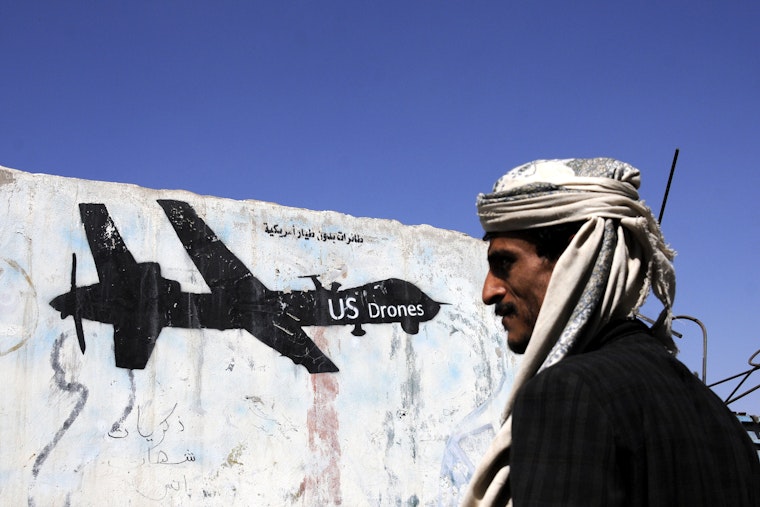The Reform U.S. Drone Policy Really Needs
By Alex Humphrey

As a candidate for president, Donald Trump said little about using armed drone strikes in U.S. counterterrorism operations abroad.
But questions about where the drone program would fit within the new president’s “America first” foreign policy, and whether President Trump would keep or loosen the existing rules on the use of force, are quickly being answered.
In its first several weeks after taking office, the Trump administration authorized armed drone strikes on an almost daily basis. As the number of U.S. drone strikes has markedly increased, the number of civilians killed by U.S. counterterrorism operations abroad has gone up as well. In fact, according to Airwars, an independent observer organization and Open Society Foundations grantee, at least 4,000 civilians have been killed by coalition drone attacks and manned airstrikes in Syria and Iraq since January 20.
Despite an escalating loss of innocent life abroad that UN war crimes investigators have deemed “staggering,” the Trump administration is now taking steps to weaken use of force rules intended to protect civilians.
These rules, established by President Obama’s 2013 Presidential Policy Guidance (PPG), require that the decision to conduct drone strikes outside of “areas of active hostilities” be accompanied by “near certainty” that civilians will not be harmed. Although it is not perfect, and although it has been the subject of criticism from human rights groups on legal and policy grounds, the PPG was an improvement over past practices, which did little to protect civilians.
The degree to which the Trump administration shares the commitment embodied by the PPG, however, is increasingly unclear.
After assuming office, for example, the Trump administration took steps to bypass PPG requirements and facilitate expanded drone strikes first in Yemen, and then in Somalia. By designating parts of those countries as “areas of active hostilities,” the administration ensured that the PPG’s rules no longer applied there, making it easier to get approval to launch attacks.
In the 100 days that followed, the United States conducted at least 92 air and armed drone strikes in Yemen—more than the United States conducted in 2015 and 2016 combined. Indeed, during the first six-plus months of his presidency, Trump has authorized five times more lethal counterterrorism operations than President Obama did during his last six-plus months in office.
Based on news accounts, many of these strikes have reportedly killed civilians. For example, on January 29, just days after the Trump administration changed the rules governing the use of force in Yemen and Somalia, 29 civilians, including 9 children, were killed during a U.S. ground raid supported by armed drone strikes in Yemen’s al-Bayda province.
Now, reports suggest that the Trump administration is considering doing away with the PPG’s “near certainty” requirement altogether. The fact that such a change would be proposed while there has been a substantial increase in civilian casualties from U.S. operations raises deep concerns about the direction of U.S. policy and the administration’s commitment to civilian protection.
In May, we joined our colleagues in urging the Trump administration to strengthen and improve—not weaken—the standards governing the use of force, and to prioritize transparency and accountability in the aftermath of U.S. strikes abroad. This is not the first time that the Open Society Foundations and other human rights and civil liberties groups have advocated for stronger civilian protections in the context of U.S. counterterrorism operations. Between 2013 and 2017, the Open Society Foundations and other groups sent four letters to the Obama administration, all of which pressed for more transparency and accountability.
The need for such measures grows more urgent as the number of civilians killed in U.S. counterterrorism operations climbs. Efforts to weaken standards governing the use of force will almost certainly lead to even greater loss of innocent life. By strengthening or at least maintaining current standards, the Trump administration has an opportunity to ensure that respect for civilian life does not fall by the wayside of U.S. counterterrorism efforts.
Until January 2018, Alex Humphrey was a policy associate at the Open Society Foundations’ Washington, D.C., office.